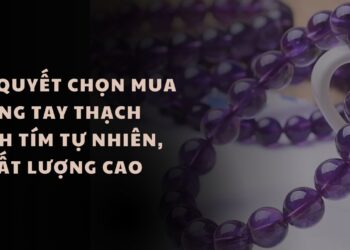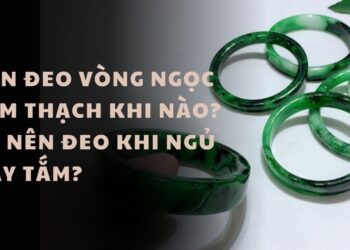The Lost Book of Herbal Remedies: The Healing Power of Plant Medicine by Dr. Nicole Apelian and Claude Davis is not quite as advertised. We’ll discuss the good and the bad, and whether or not it’s worth $37.
The Lost Book of Herbal Remedies Review
The book is a 304 page reference guide to herbal medicine. It discusses natural remedies and medicinal plants common to North America, and includes color pictures of medicinal herbs.
The Lost Book of Herbal Remedies features several sections:
- An Herbal Quick Reference Guide based on which ailment you want to treat.
- How to Harvest the Healing Power from Plants, which discusses basic herbal preparations.
- Backyard Plants
- Forest, Scrublands, and Woodlands
- Trees and Shrubs
- Mushrooms and Lichens
- Water-Loving Plants
- Household Remedies
- Appendix
On the official website, the video notes that there are three parts to the book, but this does not seem to be the case. They also keep mentioning “my grandfather’s book”, but I didn’t find grandpa in the actual book. There is a 30 day money back guarantee.
About the Author
According to page one of the book, The Lost Books of Remedies is “edited and written” by Nicole Apelian, PhD, and copyrighted by Claude Davis. On the cover of the book, it’s credited to Nicole and Claude, but as I noted in our review of “The Lost Ways”, it appears that Claude isn’t a real person.
Nicole has an impressive resume, with multiple degrees and a wide range of experience. She’s lived with indigenous peoples, been featured on survival television shows, and teaches herbalism and survival skills. The book explains in general terms how she manages her multiple sclerosis.
In May 2020, the FTC issues her a warning letter for making unsubstantiated herbal claims.
Book Highlights
The Herbal Quick Reference guide offers nearly 20 pages of herbal suggestions for treating everything from broken bones to snake bites. It lists the condition, then directs the reader to the related herb entry later in the book.
The “How to Harvest” section gives instructions for harvesting and drying herbs, and making simple herbal preparations such as infusions, salves, and poultices.
Most of the book is filled with herbal monographs providing information on identification and use of specific plants. There are over 100 plants from around the United States, listed by common name and scientific name. Each entry includes one or more color photos, and there are general instructions for use.
Why I Don’t Recommend The Lost Book of Herbal Remedies
The Lost Book of Herbal Remedies does not identify the USDA zone where the plants grow. There is no bibliography or reference section, so we have no source materials for the text. The book has thin pages, and reviews on amazon note some books had missing pages.
My biggest issue with the book is inaccurate information. I’m not familiar with every herb in the book, but I’m sure there are mistakes on ones I do know.
They claim the leaves and stalks of burdock are good raw or cooked. This is not correct. Here’s a better description from The Forager’s Harvest by Samuel Thayer:
Some authors report that the young leaves of burdock are edible, adding that they should be parboiled in a few changes of water before consumption. Perhaps there is some semantic loophole by which such horrific greens can be admitted to the “edible” classification, but burdock leaves have achieved quite a level of infamy among wild food enthusiasts. They are so bitter, in fact, that handling them will leave a bitter residue on your fingers that will pollute any food you touch thereafter.
Almost all the photos in the book are stock photos, and sometimes stock photos have the wrong label.
It’s a common mistake for people who don’t know herbs to grab a stock photo that is labeled as a specific plant without double checking the identification. The book shows “burdock” that is clearly thistle, and “red clover’ that isn’t red clover. If they can’t make time to check photos for accuracy, what else did they get wrong?
No certified herbalist I know would put their names on a book like The Lost Book of Herbal Remedies
Watch out for Contraindications and Drug Interactions
While the book focuses on how well herbal remedies work, there’s little information on when they shouldn’t be used. Some of these herbs have drug interactions, or are not recommended for those with certain conditions.
As an example, the book notes: “Warning: Do not use white willow in children suffering from low grade fevers. Do not take white willow if you are allergic to as aspirin. Do not use long term.” It does not mention liver interaction or pregnancy.
As a comparison, WebMD lists multiple pages of side effects, precautions, and interactions.
The advertising for The Lost Book of Herbal Remedies goes on at length about “finding your inner doctor” and how safe and simple it is to use herbs. Herbs are great, but if you want to use them like medicine, you need to treat them like medicine.
What I Recommend Instead of The Lost Book of Herbal Remedies
First, get a book written by people who don’t hide behind a pen name. There are many amazing herbal books available. Second, if you really want to know what to do with herbs in case of emergency, get training. There are a wide variety of online herbal courses, or you may be able to find in person classes.
Some of my favorite herbal books include:
Backyard Medicine – this book has multiple gorgeous full color photos for each plant, with simple instructions the are safe for the beginning herbalist.
The Homesteader’s Herbal Companion – geared to the homesteading lifestyle, this book includes herbs to grow and forage. There are many different recipes for human and animal care.
The Holistic Herbal by David Hoffman – this was one of my first herbal books, and it’s still a favorite. There are herbal monographs, medicine making instructions, and troubleshooting based on ailment.
If you want to take a course, check out The Herbal Academy. They have courses from beginner to advanced, and some of their courses don’t cost much more than The Lost Book of Herbal Remedies.
 /
/
My friend, Amy, author of The Homesteader’s Herbal Companion, also has a course titled “Homestead Herbalist: Herbs & Preparations for Colds, Viruses & Flus”. It’s easy to follow and will get you safely through some of the most common illnesses.
Get More Information on Herbal Remedies
We have dozens of post on the site featuring home remedies, herbalism and wildcrafting. You can find them at:
- Home Remedies that Work
- Herbs and Wildcrafting
- How to Make a Salve with Infused Oils
It makes a HUGE difference when you share our articles. Thank you so much!






